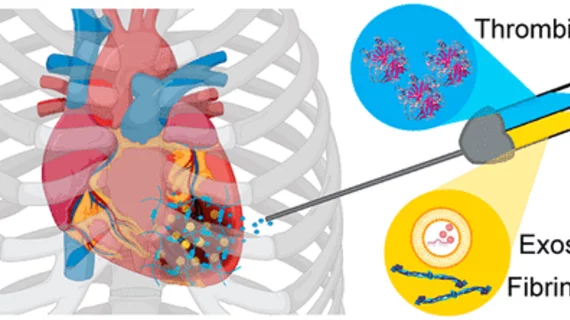New spray could help heal the body after a heart attack
Researchers in China have developed a new exosome spray capable of repairing rat hearts after a myocardial infarction, publishing their findings in ACS Nano. Could this spray eventually be used to help humans?
The study’s authors, unhappy with existing methods for delivering helpful stem cells to the heart, developed an exosome solution that could be sprayed through a tiny incision. Exosomes from mesenchymal stem cells were mixed with fibrinogen, a protein known for its clot-forming properties, and loaded into a double-barreled syringe that included thrombin in the other barrel.
Spraying the two solutions through an incision, the team found, resulted in the formation of a gel that stuck to the rat’s heart. When given to a rat that had recently experienced a myocardial infarction, the team’s new gel was associated with improved cardiac healing and elevated levels of important proteins.
“Our results indicate that [the exosome spray] is a promising strategy to deliver therapeutic exosomes for heart repair,” wrote lead author Yafeng Zhou, a cardiologist at Suzhou Dushu Lake Hospital in China, and colleagues.
The team’s full study is available here.

